Homeland or trashland
Ever wondered why there is so much trash on our streets? Nadine El Roubi points to the reasons and prompts a sense of ownership of our beautiful land.
I’ve travelled out of Sudan many times in my life. I’ve seen how people in other countries live, how they roam clean streets and walk safely along paved sidewalks. I always wondered why Sudan couldn’t look just as pretty. Why we have to walk by piles of rubbish and drive on streets littered with plastic bottles crushed under the wheels of indifferent drivers. Why all this is somehow inevitable when it can easily be altered by cooperating as a nation
Just the other day I saw a broken chair in the middle of the road. The sight was so ridiculous that I laughed out loud. After getting over the humorous side of it, I began to think about why it was there, and other unseemly sights I’d seen while living here. I remember when I was about twelve, passing a fence that had millions of plastic bags stuck in its holes, their colours dull with age and dust. I remember saying to my mother that it was like the garden our neighbours had in America. They had a white picket fence with pretty flowers weaving in and out of the spokes. Even then I wondered why the fence couldn’t be decorated with flowers instead of plastic bags, and why Sudan couldn’t be as green and clean as other countries.
It’s unfortunate that, in a way, this is our own fault. The common mentality is that it’s dirty anyway, there’s no point in trying to change it. There’s already trash on the road, what’s the harm in throwing just one more bottle out of the window? The problem is that when a million people have this mentality, that one bottle makes a difference. Using our homeland’s street as the recipient of our waste is a mentality that is entrenched in our minds as part of everyday life, and to change it seems like breaking tradition. People speak of being patriotic, of being loyal to Sudan. Loyalty, as I see it, is not turning your country into a public waste disposal system. Patriotism is to love your country as you love yourself, and I am one hundred percent sure that if someone threw an old plastic bottle at your head, you wouldn’t react too well.
It all comes down to one thing, would you throw your trash on the floor in your house? I highly doubt it. So why are you throwing your trash on the street? Your country is your home, and the streets are crucial components of what makes your country. Ergo, you treat it as your house, and you treat it well.
I keep addressing you, the reader. I thought long and hard about who ‘you’ actually consists of. Unfortunately, for the most part, many of whom this actually applies to will probably never read this article. Alternatively, those who will may very well know what I’m talking about and have probably thrown something out of their car window at one point in their life. I know I tried to.
I know you’re probably thinking, even if we do want to change this, how? How can we possibly clean up 1.8 million square kilometres of land? It does seem like a daunting prospect. You’d have to be crazy to try it. But then again, those who are crazy enough to think can change the world. So let us, as a nation, confront the impossible. Only through co-operation and a mutual desire for change can we alter what so many of us have established as unavoidable. Wanting change? That’s easy. Making a change? That’s up to us.

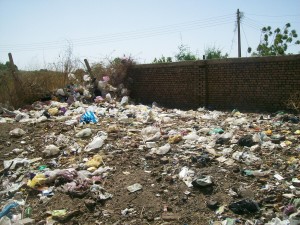
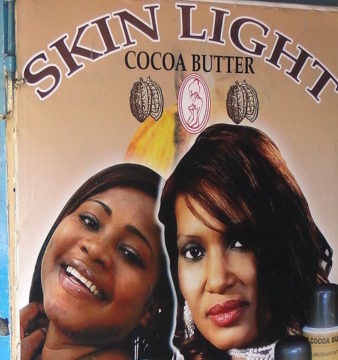
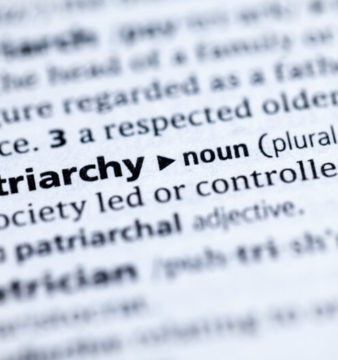
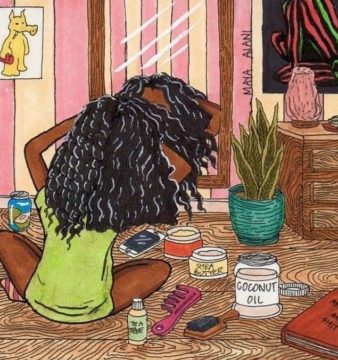
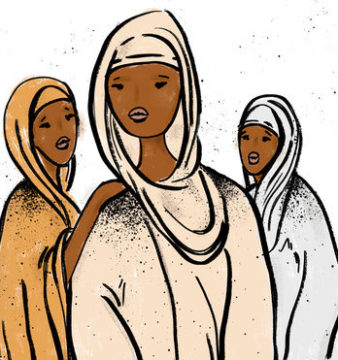
What a great post.
I remember once visiting Sudan and walking the streets with my cousin. I loved ice cream and I bought the both of us two cups full. We finished our ice cream as we walked and talked. We walked for miles, homeward bound. I never saw a dumpster in sight and my fingers were dripping with sticky ice cream. But I held on to that cup and plastic spoon, sub-consciously. I held on dearly, though the sand on the roadside was begging. Once I saw a platform to put my cup on (nearby dukkan), I obliged. To myself, I threw in the towel, even though I didn’t bring myself to throw the cup on the street. On seeing my meager actions, my cousin congratulated me. I asked why, rather sheepishly, thinking he was about to chide me. He explained that he was waiting to see what I would do with the empty cup, whether I’d toss it on the streets or not. He was relieved I didn’t throw it on the ground. So many people did that. My actions seemed to have satisfied him. They weren’t the norm in his experiences. But to myself, what I did was litter. The least I could have done was waited until we got home and thrown that plastic cup in the dust bin. But even so, my cousins are exceptional Sudanese. They’re 100% native (lived there all their lives) and yet retain distinct criticisms of the country at large, as if they never lived there (just like the author of this post). They were divorced from the status quo. They aren’t beaten down by it like so many in despair in Sudan. Truly remarkable. It amazes me talking to them. There are pockets of brilliant minds, like my cousins, all over Sudan. Isolated bubbles completely ready once the leadership changes. I’m confident of it.
Whenever my dad visited Sudan, he used to enjoy evening trips to parks in Khartoum. He used to purchase soda from street vendors and enjoy the beverages. When done, he used to keep any trash and waste (plastic bags, bottles, even banana peels) on his side, put it in a plastic bag and find the nearest disposal. His half brother used to playfully tell him to just toss the bag on the ground, that there were public servants and street cleaners that would take care of the letter in the morning. His half brother (my uncle) told me this story, because he observed me wrapping up all the garbage in a plastic bag, and carrying that bag with me. He was saying “your father used to do the same thing. Just leave it. But your father would lecture me gently about social responsibility”. There you have it. My native cousins and my very educated and lived abroad father, thinking on the same lines. What it says is there is untapped potential.
My latest sibling was not born in Sudan (my parents gave up that tradition). He was four as we drove home, my dad, myself, and this sibling. I must have had a candy wrapper of some sort. No sooner than finishing whatever I was munching on, this sibling chimed in “don’t throw that wrapper out the window. That’s littering!” I was stunned. My dad wasn’t. He explained this is what good schooling and public policy does when you live and are nurtured in developed countries. I learned the ‘do not litter’ lesson a bit later in my life.
Malcolm Gladwell writes about the domino effects of clean streets and low crime rates in Tipping Point. Sometimes the actions of a few, combined with good policy, and education can make all the difference. Keeping a few streets clean can turn neighborhoods and towns to uphold the momentum. Things can be reversed but it takes energy and good faith.
Keeping a city clean and educating denizens in that regard is one of the simplest and most basic services a municipal government can do. But ultimately, the Sudanese government is a failed State, at all levels.
About Sudan not being green. Khartoum doesn’t have to be green to be beautiful. It can be clean. There are parts of America that are very non-green (the Southwest) that nevertheless are well planned and well worth living in.